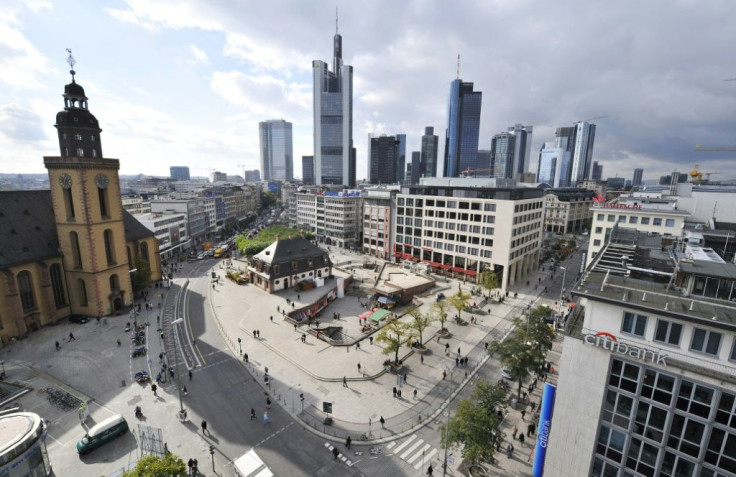Is Germany’s Economy In Crisis? Factory Orders Decrease 1.3% In November

German factory orders decreased 1.3% in November over the previous month, the German Economy Ministry said Wednesday. Lower demand is one of the main reasons for the decrease, with factory orders from Eurozone countries dropping 3.3% and a 2.8% decline in factory orders from countries outside of the Eurozone.
“All in all, there are no signs at all of a bottoming out for German industry,” ING Germany economist Carsten Brzeski said. “Instead, the free fall continues.”
Germany’s economy has managed to narrowly avoid a recession so far, growing in the third quarter of 2019 by 0.1% and decreasing by 0.1% in the second quarter of the year. Economists consider two straight quarters of GDP decreases to be a technical recession.
The German economy is struggling to stay afloat amid global trade tensions and the U.K.’s looming exit from the European Union. Germany's economy is export-driven, relying on sales of well-made goods such as vehicles and machinery to other nations. India, China and the United States are just a few major markets for German exports.
The U.S.-China trade war has hit the German auto industry, with automakers BMW and Mercedes seeing lower sales in China. In March, both BMW and Mercedes lowered prices in China due to weaker demand.
Germany is also still worried about the real possibility of the U.K. leaving the EU without a deal, known as a no-deal Brexit. An economic study released by German researchers in February shows that more than 100,000 German jobs could be affected if there is a no-deal Brexit.
Germany could use a fiscal stimulus plan to boost the economy but the German government may be reluctant to spend its budget surplus for the year. As of November, Germany is set to have a budget surplus for 2019 at around 1.2% of its GDP.
One way Germany has tried to boost its economy is by trying to attract skilled workers from outside of the European Union. Many small and mid-sized German companies are desperate for skilled labor with the right qualifications for their business operations.
"A lot of [where Germany's economy is headed] depends on what's going on around it," Jackson Janes, a senior fellow at German Marshall Fund of the U.S., recently said in an interview on China Global Television Network. "Brexit, of course, is one issue that is going to have a major dent and the larger issue of trade wars between the United States and China, both of which are huge markets for Germany.
"So if there is a slowdown, in all of those cases, Germany is going to take a hit."
© Copyright IBTimes 2025. All rights reserved.





















